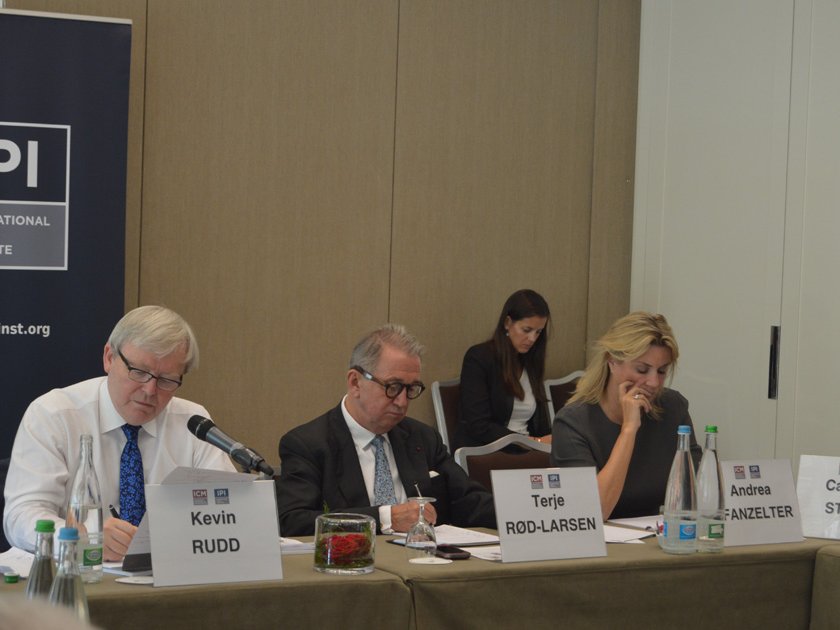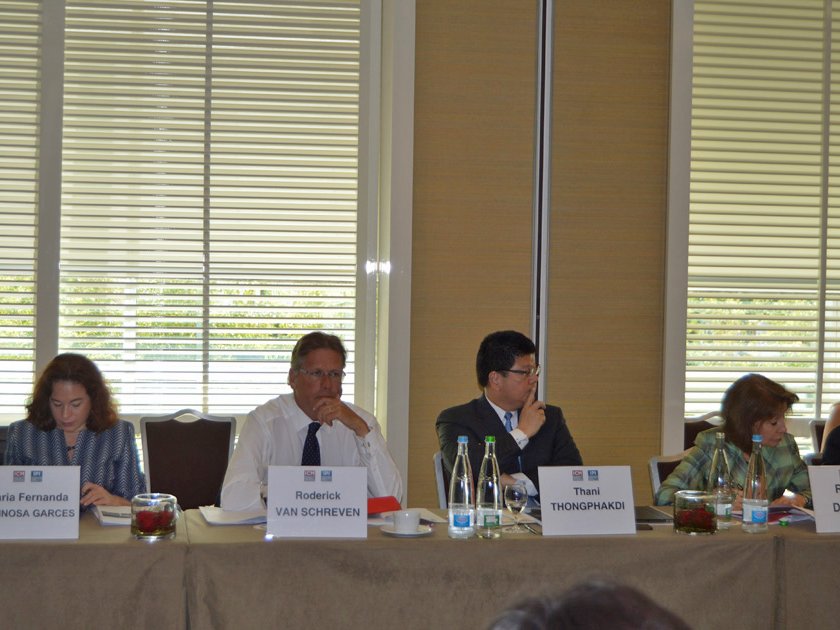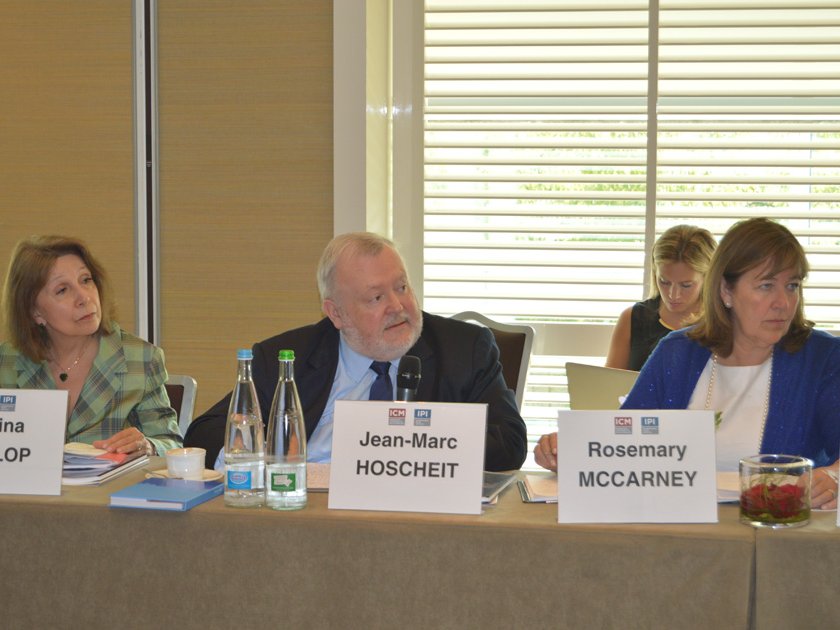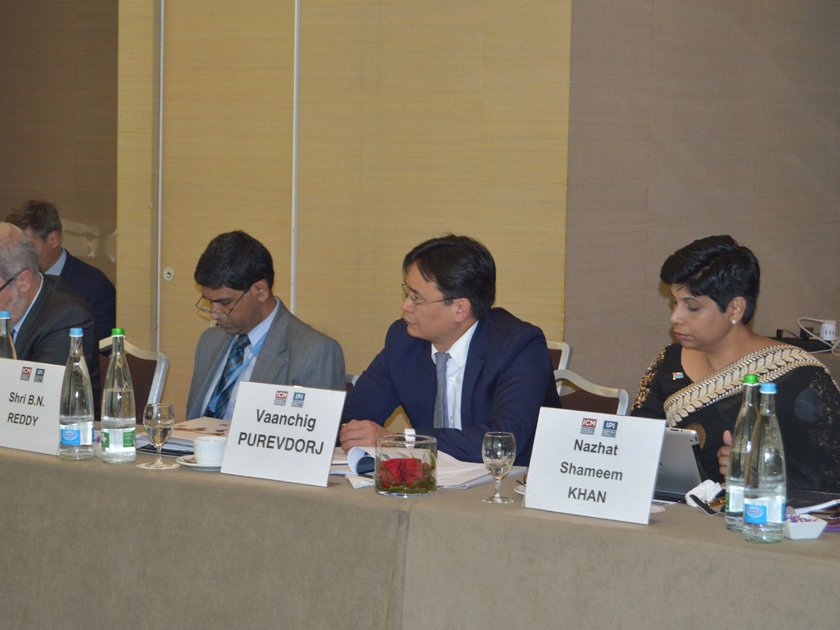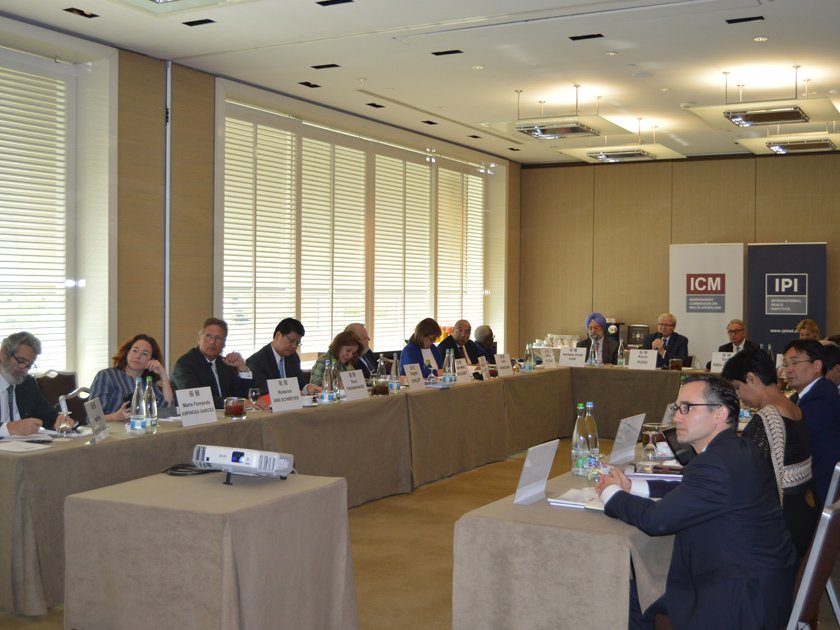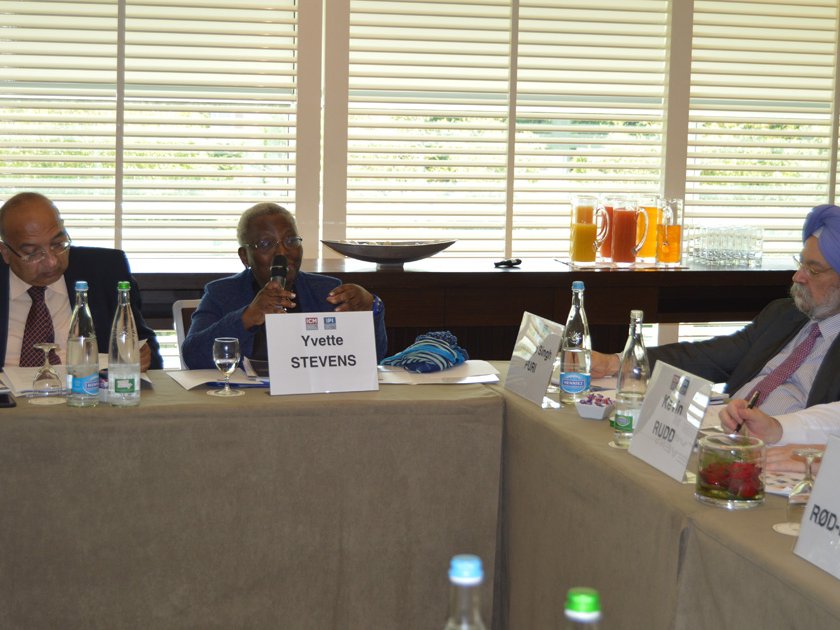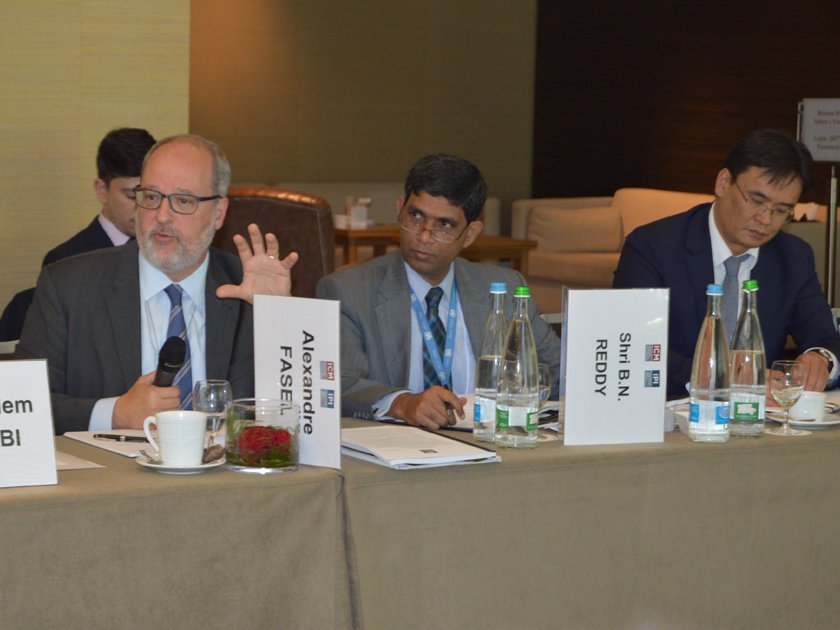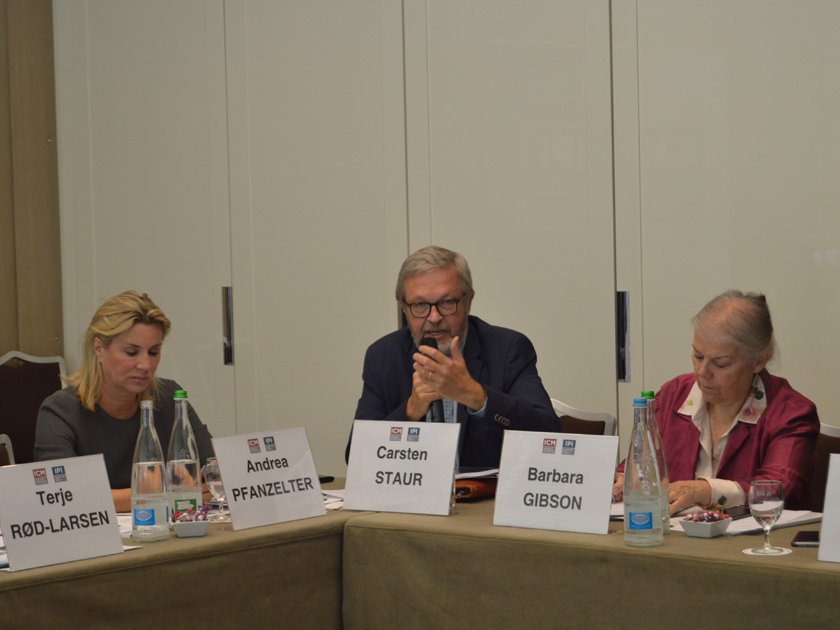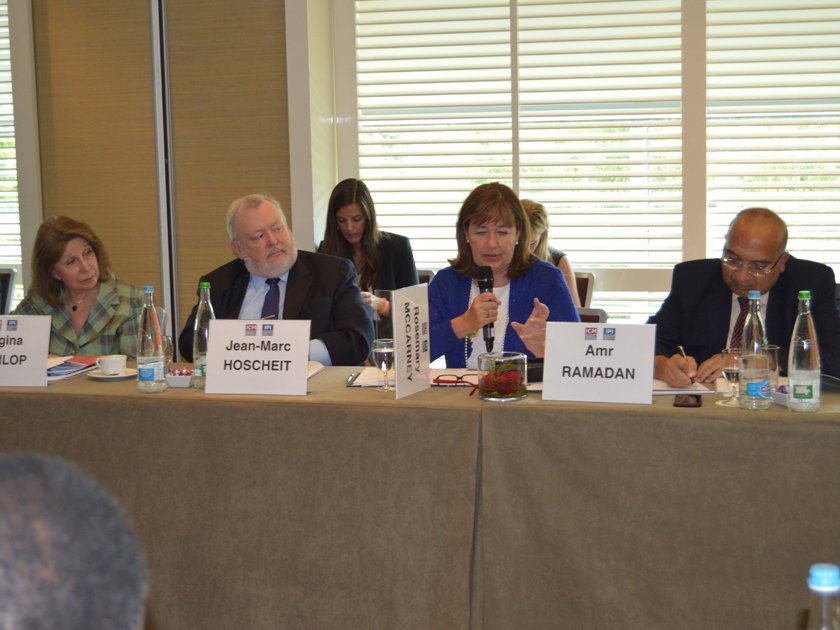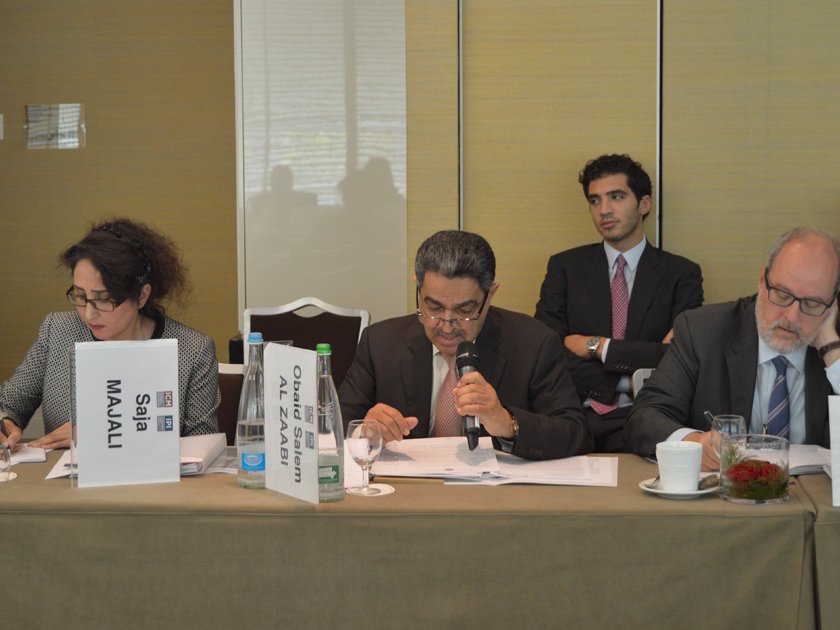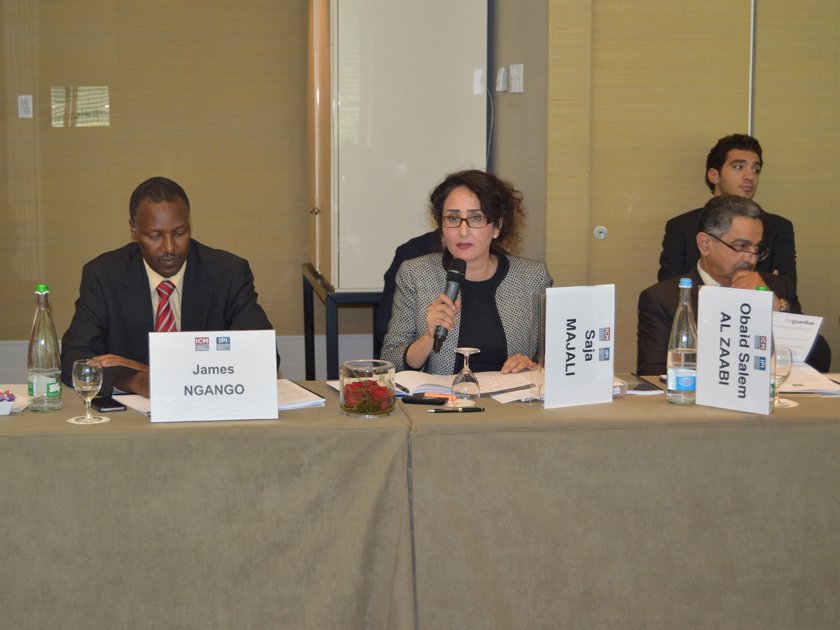The meeting of the Independent Commission on Multilateralism’s Geneva-based Ambassadorial Board took place at the InterContinental Hotel in Geneva on September 11. The meeting was chaired by the Right Honorable Kevin Rudd, Chair of the ICM.
Mr. Rudd welcomed the members of the Ambassadorial Board indicating this would be the first of two meetings over the course of the next six months. The purpose of the meeting was to present to the Ambassadorial Board the ICM’s outputs thus far and seek strategic guidance on the process going forward.
The discussion opened with an analysis of the ICM methodology, particularly the notion of a ‘functional’ rather than an ‘institutional’ approach to the challenges of the twenty-first century. There will always be challenges—and they will continue to evolve—but the real question is how the mechanisms in place are dealing with those challenges. For the ICM, challenges and institutional responses are inseparable, but the focus is on the latter.
Among the issues raised was the sense of “ownership” of the UN by member states, seventy years after its founding. Key multilateral processes are often undertaken at headquarters and not with the full participation of regional hubs and field offices. For Geneva‐based missions, this was expressed directly in relation to the Sustainable Development Goals which one participant expressed disappointment over the lack of Geneva‐based missions in the initial formulation and negotiation phases. Mr. Rudd expressed his desire to make this institutional challenge a central part of the ICM’s recommendations: how can the relationship between the various relevant agencies—particularly the relationship between field and headquarters—be improved? This will be particularly important when it comes to the practice and implementation of the SDGs.
Mr. Rudd also expressed the need to remain conceptually and institutionally agile. Institutions can just remain a name and slowly lose their substance over time. The sustainable approach to reform will protect the UN from “quietly dying the death of a thousand cuts.”
It was recommended that the ICM also take a systemic approach to issues, including all relevant stakeholders to try to make up for the institutional silos, in order to consider issues in their full complexity. Indeed, the true purpose of multilateralism is not institutions, but how the international community is able to manage global public goods. The 2030 Agenda is a very important step in this regard. Are there effective protocols that could govern the relationship between UN institutions and regional organizations? There is a need to keep the UN as a core—rather than one of many—norm setter.
Multilateralism does not only mean UN: there is a whole international community emerging which needs to be kept in perspective. In terms of the question of the coherence in the international system, one of the biggest developments in the system is the proliferation of new actors. There is a need to see how we can make certain state or non-state actors more legitimate, as a means toward further inclusivity. There is also a need for more creative ways to engage the private sector.
The participation of civil society is very important in this regard. Geneva is a real civil society hub and it serves as a good example of the positive impact that civil society can have on international policymaking. The tension between civil society and the state requires further thought: how can it be improved and made mutually beneficial? The role of Geneva can come into strength on the pillars of development and human rights. Mr. Rudd responded that, during the first quarter of 2016, the ICM would organize a civil society briefing in Geneva alongside two thematic retreats on ‘Global Pandemics and Global Public Health’ and ‘WMDs, Disarmament and Non-Proliferation” both of which would also include adequate civil society participation. This is part of an ongoing strategy of the ICM to keep all members—including civil society and the private sector—engaged in the work of the ICM, both in New York and in various world capitals.
Youth is central to the issue of inclusivity. In order to have youth participating constructively, it is not just about the matter of jobs, but of creating opportunities. There needs to be an emphasis on new ways of communication and the role of technology. There must also be the recognition that many young people are on the “wrong side” of the technology divide and will not participate if the multilateral system does not address this. Mr. Rudd explained that this was precisely why the three issue areas on “Youth,” “New Technologies” and the “UN Communication Strategy” were part of the ICM’s agenda.
A point that will be critical in the future is the issue of accountability. The demand for international accountability will increase in the future. The human rights pillar is still by far the weakest pillar alongside peace and security, and development, and there are many things that can be done to improve this.
On another substantive point, the need to improve global health governance was expressed by several participants. The Ebola crisis has shown the need for a more systemic approach, bringing in multiple stakeholders. Similarly, in terms of developing mechanisms for early effective response, the institution—focused approach has its limits. Mr. Rudd emphasized that this is precisely why the issue area on “Global Pandemics and Global Public Health” was on the agenda and looked forward to engaging Member States—among other participants—and seeking their specific views at the aforementioned retreat in Geneva in early 2016.
List of attendees:
- H.E. Mr. Kevin Rudd, Chair of the ICM, and former Prime Minister of Australia
- H.E. Mr. Hardeep Singh Puri, Secretary-General of the ICM
- H.E. Terje Rød-Larsen, President, International Peace Institute
- H.E. Mr. Obaid Salem Al Zaabi, Permanent Representative, Permanent Mission of the United Arab Emirates to the United Nations
- H.E. Ms. Regina Dunlop, Permanent Representative, Permanent Mission of Brazil to the United Nations
- H.E. Mr. Alexandre Fasel, Permanent Representative, Permanent Mission of Switzerland to the United Nations
- H.E. María Fernanda Espinosa Garcés, Permanent Representative, Permanent Mission of Ecuador to the United Nations
- H.E. Ms. Barbara Gibson, Senior Advisor, Independent Commission on Multilateralism
- Mr. Patricio Guesalapa, Minister Counselor, Permanent Mission of Ecuador to the United Nations
- H.E. Mr. Jean-Marc Hoscheit, Permanent Representative, Permanent Mission of Luxembourg to the United Nations
- Dr. Walter Kemp, Senior Director for Europe and Central Asia, International Peace Institute
- H.E. Ms. Nazhat Shameem Khan, Permanent Representative, Permanent Mission of Fiji to the United Nations
- Dr. Adam Lupel, Director of Research and Publications, International Peace Institute
- H.E. Ms. Saja Majali, Permanent Representative, Permanent Mission of Jordan to the United Nations
- H.E. Ms. Rosemary McCarney, Permanent Representative, Permanent Mission of Canada to the United Nations
- Mr. James Ngango, Permanent Mission of Rwanda to the United Nations
- H.E. Mr. François Xavier Ngarambe, Permanent Representative, Permanent Mission of Rwanda to the United Nations
- Ms. Andrea Pfanzelter, Senior Director, International Peace Institute
- H.E. Mr. Vaanchig Purevdorj, Permanent Representative, Permanent Mission of Mongolia to the United Nations
- H.E. Mr. Amr Ramadan, Permanent Representative, Permanent Mission of Egypt to the United Nations
- Mr. B.N. Reddy, Deputy Permanent Representative, Permanent Mission of India to the United Nations
- H.E. Mr. Carsten Staur, Permanent Representative, Permanent Mission of Denmark to the United Nations
- H.E. Ms. Yvette Stevens, Permanent Representative, Permanent Mission of Sierra Leone to the United Nations
- H.E. Mr. Thani Thongphakdi, Permanent Representative, Permanent Mission of Thailand to the United Nations
- H.E. Mr. Roderick van Schreven, Permanent Representative, Permanent Mission of the Netherlands to the United Nations

